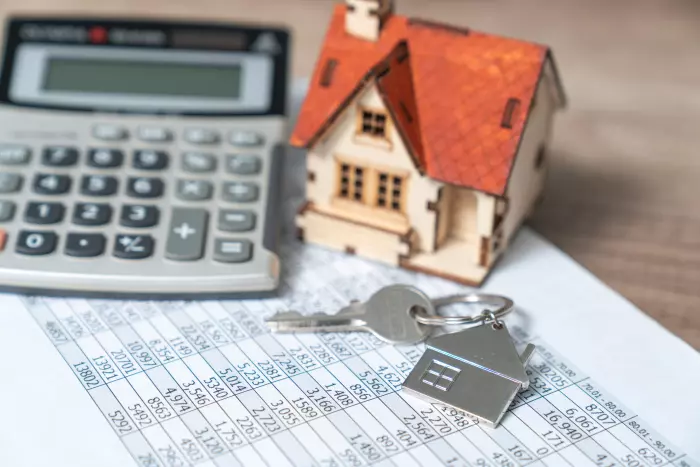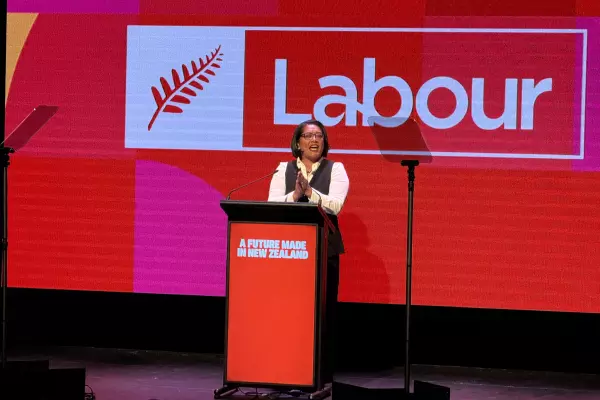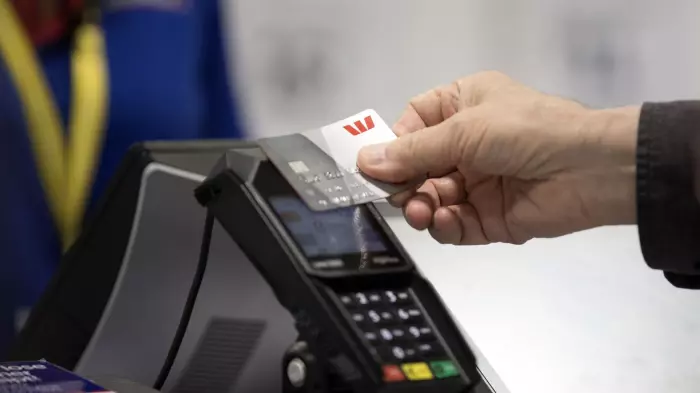BusinessDesk investments editor Frances Cook responds to emails from readers each week, answering questions about money. Below, you will find her expert advice. Send your questions to [email protected].
Hi Frances,
I did your Money Made Simple course late last year and got so much out of it.
I’ve just bought my first home and have now got to the crunchy end of working out my mortgage structure. I was wondering if you have any advice or resources on this and, in particular, revolving lines of credit.
For my deposit, I used as much of my KiwiSaver as I was able to withdraw (I'd been in since the beginning, so circa 2007). I ended up with a 21.6% deposit.
The house is a two-bedroom villa with a sleepout out the back. I know that if I get a boarder in to help pay the mortgage and utility bills, it would help a lot. I'm also looking at renting out the sleepout on Airbnb as an option, as I'm close to the airport and could pitch it at the early morning flights and late arrivals crowd.
Currently, the sleepout doesn't have an ensuite, so I'd have to allow access to the main part of the house. The kitchen, bathroom and laundry are part of an extension, so I can lock the kitchen door so that people in the sleepout can't access the main part of the house. There's another house on the same street doing exactly that.
Eventually, I want to be able to build an ensuite but am thinking it might be best to live in it for a year before I do anything big. But part of me thinks the sooner I get an ensuite, the more rent I can charge and the fewer people will have access to my house.
Money will be tight to begin with because I've been used to living in rental properties with two flatmates where we share bills and don't have to pay for house insurance, rates and maintenance.
It'll be a bit of an adjustment, but in the past I've been very good with my short-term savings.
I've done a lot of travelling and paid everything in full (including a $24k car). I would put everything on my credit card and pay it off each fortnight when I got paid, and then I would have leftovers to put straight into my savings account. On your suggestion, I've managed to get my credit card fees waived for a year.
Where I'm at now is navigating the confusing part of structuring the mortgage so I can pay it off quicker and still have a life. I've got a mortgage broker, but I'm not sure if they've explained the process very well.
I understand the concept of an offset account, but some banks don't have offset accounts. They have a revolving credit instead.
I'm confident I'll be disciplined enough to spend less than I earn (especially if I have an extra boarder and Airbnb income), but it's the fixed term split and structure I'm not sure about.
Someone told me to keep it simple and don't overcomplicate it. I'm looking at a small revolving credit and split the rest over 12 months, 18 months and 24 months with the hope that interest rates will drop.
Thanks!
M.
Hi M,
If you’re looking for reassurance that you’re doing well, let me give that to you.
You’ve done amazingly coming this far, and I have some great options in mind to get you even further. It sounds like you’re now possibly feeling overwhelmed with the enormity of what’s happening, which is understandable. A mortgage is daunting to anyone, especially the first time around.
I like your thoughts about the potential for Airbnb on the property. The first few years with a mortgage are often the hardest and tightest for the budget.
After a bit of time, hopefully, you get a couple of pay rises while the mortgage stays the same, or maybe even reduces if interest rates go down.
So, getting through the early years and then taking the foot off the gas a bit is the hope.
A word of warning, though: you’ll need to factor in insurance (often higher if you’re doing short-term rental) and the time needed to look after guests.
Because they’re on-site, you could probably do things such as laundry and key handover yourself rather than needing to hire a cleaner or manager. So that’s a good cost reduction.
But it’s also often quite time-consuming, and guests can be demanding. Ensure you also have looked into any safety precautions you may need to take. Airbnb has reviews about guests to help you weed out any bad ones, but if you’re using other sites, you might not get the same level of information about them.
That’s not to say don’t do it; make sure you’ve got those factors in consideration.
On to the mortgage
It is quite difficult sometimes to communicate with financial professionals. Love them and love the work they do, but they’ve sometimes been so deep in the weeds for years that they forget how to speak in plain English for us regular folk.
I think the structure you’ve mentioned, splitting up fixed terms and then having a chunk on either offset or revolving, sounds good.
In terms of revolving versus offset, here’s a quick explainer. It’s basically savings versus cheaper debt.
An offset account uses your savings, and anything that’s in there is taken as knocking that amount off your mortgage, therefore saving you money.
Meanwhile, a revolving credit is almost like an overdraft that’s attached to your mortgage. It can let you dump any extra payments in there, immediately saving that much interest. But you also have the freedom to take it back out if needed.
Because you’re someone with a good history of debt, either could be a good option for you. Someone who’s struggled with debt in the past can find it hard to resist dipping into revolving credit too often and end up costing themselves more overall.
Really, it comes down to who will give you the best interest rate. The tactics are quite similar and sound suited to your money personality.
I contacted a mortgage adviser to give us more in-depth on this. Here are her thoughts on your situation.
Claire Williamson, director and adviser with My Mortgage
A huge congratulations on purchasing your first home – what an achievement.
For someone in your situation with a great deposit and the ability to build extra income (and without knowing the specifics here), I’d be considering a few different options with regard to fixed terms and offset/revolving credit.
Keep in mind that floating options are roughly 2% more expensive from an interest perspective than fixed rates. So, to make these products worth having at that higher rate, it’s a good rule of thumb to have the ability to pay off a considerable amount more than the minimum to make progress.
A floating product could be something to consider for someone like you who is an excellent saver.
A revolving credit is a great option if you are saving for something in particular. A good example in this case is putting in an ensuite (just bear in mind you’ll need to ensure you meet council regulations, etc, for insurance purposes).
So, for example, if you wanted to save $10k for this, setting up a revolving credit slightly higher than this amount and treating it like a savings account (rather than a transactional account) is a great option. Any additional cash over and above normal expenses could be put into this account, along with any side income from a boarder, which could build up into a fund to add value to the property.
An offset is best if you have multiple savings accounts or would like to keep your “pots” of money separate. It’s also good if you have an extra chunk of cash, which might just be put away for a “rainy day” rather than something specific.
The other key difference is that a revolving credit product is usually interest only, and often, an offset is principal and interest.
In terms of the fixed portion, the idea of keeping it simple is sound. We’re in an interest rate environment at the moment where there is a strong likelihood that rates will start to come back within the next 12 months. So, generally, a shorter-term rate is a good option.
I often talk about Fomo when it comes to rates, as borrowers need to balance certainty with the likelihood of rate changes, and often, certainty can be weighted as slightly more important for some people.
So, the lending could be split across a shorter term and slightly longer, such as 18 months, as that provides good value. The downside risk is that rates might drop at that time, so it’s key to balancing those two factors!
Send questions to [email protected] if you want to be featured in the column. Emails should be about 200 words, and we won't publish your name. Unfortunately, Frances cannot respond to every email received or offer individual financial advice.
This column's information is general and should not be taken as individual financial advice. The article has also been edited for clarity.
Frances Cook and BusinessDesk are not responsible for any loss a reader may suffer.














